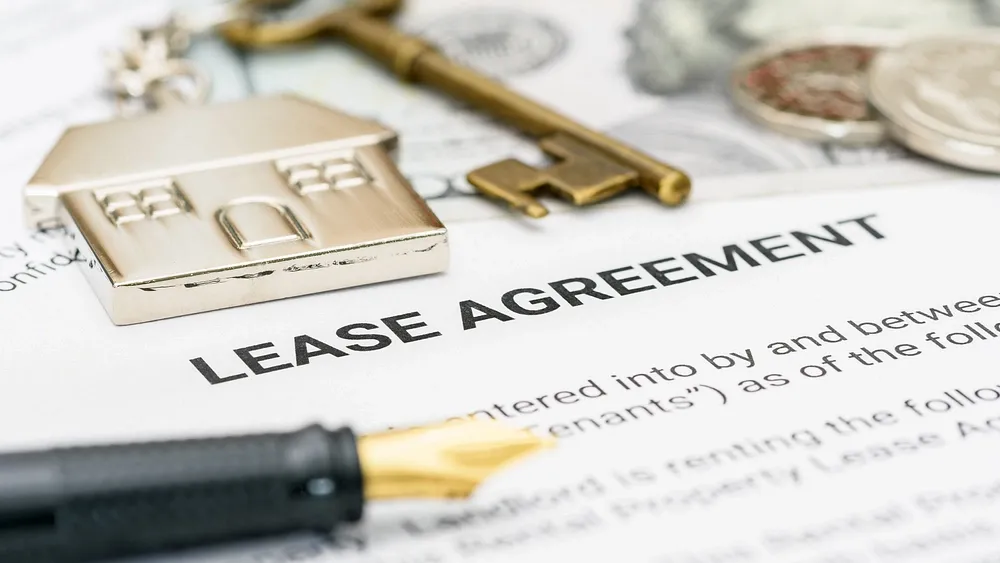Signature Collection
Explore SignatureDubai is one of the most attractive cities for expats, thanks to its tax-free income, luxurious lifestyle, and thriving economy. With the increasing number of people moving to the city, there is also a rising demand for affordable housing. This often leads to tenants exploring the option of subletting in Dubai. While subleasing is not very common, many residents consider it due to changing personal or financial circumstances.
If you're asking yourself 'can I sublet my apartment', we're here to help you out. This guide uncovers everything you need to know about subletting in Dubai.
What Is Sub-Leasing?
Subleasing in Dubai refers to a situation where the primary tenant rents out part or all of their rented property to another person (subtenant). This can occur for several reasons:
- The original tenant can no longer afford the full rent and wants to share the cost.
- The tenant is relocating before the lease ends and prefers to sublet rather than pay early termination penalties.
Subleasing usually appears in two scenarios:
- When an agency holds the master lease for an entire building and then subleases units to tenants.
- When a tenant sublets part or all of their rental unit to a third party during the lease term.
Is Subletting Legal in Dubai?
According to Dubai sublet laws, subletting is governed by Article 24 of Law No. 26 of 2007. This article clearly mandates that a tenant must secure prior written consent from the landlord before subleasing any part of the rental property. If the tenancy agreement already contains a clause that explicitly allows subleasing, this consent may not be required.
However, if a tenant sublets without proper authorization, it constitutes a serious breach of the tenancy contract. As per Article 25 of the same law, such a violation grants the landlord the legal right to terminate the lease agreement and evict both the tenant and any subtenants. Additionally, landlords may pursue compensation for damages resulting from unauthorized occupancy.
If you’re wondering, can I sublet my apartment? especially under Dubai's rental framework, you should know that the legality hinges on your lease terms and whether you've secured the landlord's written permission.
If your contract doesn’t specify, you’ll need a No Objection Certificate (NOC) from your landlord. However, landlords in Dubai are often reluctant to approve subleasing due to concerns about the reliability of subtenants or potential property misuse.
Even if approval is granted, tenants remain fully responsible for any damage caused by subtenants.
What If You Sublease Without Permission?
Subletting in Dubai without the landlord’s consent is a breach of the tenancy agreement. Landlords have the legal right to terminate the lease and evict both the tenant and subtenant, regardless of the lease's expiry. This is one of the significant consequences outlined in Dubai sublet laws.
Additionally, landlords can take legal action and file a compensation claim against the tenant for unauthorized subleasing.
Rights of Subtenants in Dubai
When subletting is done legally with the landlord’s consent, subtenants enjoy the same rights as tenants. For instance, to increase rent, landlords must give 90 days' notice, and any increase must align with the RERA rental index.
If you're curious about how long you can sublet an apartment in Dubai, the answer usually depends on the remaining term of your original lease agreement and the conditions outlined in your contract. The sublease typically lasts as long as the original lease unless otherwise stated. However, without a written agreement, subtenants have very limited rights and may be evicted at any time.
Exploring Tenant Options for Subletting
In some cases, landlords may be open to negotiating terms. For example, tenants can request to transfer the lease to another person. If that’s not viable, and penalties are affordable, breaking the lease might be a better alternative than illegal subletting in Dubai.
You may also avoid these challenges by requesting subletting permissions upfront. Tenants not planning to stay the entire lease term can negotiate a clause in the contract that allows subletting. If you're looking for flexibility, short-term rentals are another alternative to consider instead of entering a full-year lease.
Sublet Agreements in Dubai
A sublease agreement is a formal, legally binding contract between the tenant (also known as the sublessor) and the subtenant. It outlines key details such as the rent amount, payment due dates, duration of stay, security deposit terms, and maintenance responsibilities.
In Dubai, this agreement must align with the terms of the original tenancy contract and explicitly include the landlord’s written consent to ensure its legality.
The sublease should also specify rules around property usage, renewal conditions, and any restrictions on further subletting. By formalizing the arrangement in writing, all parties—landlord, tenant, and subtenant—are better protected from legal disputes and can refer to clearly stated terms in case of any disagreement.
Subletting Disputes in Dubai
Disputes arise for various reasons, including:
- Unauthorized subleasing: When tenants rent out their unit or part of it without obtaining written consent from the landlord, violating Dubai sublet laws.
- Damage to the property: Subtenants may sometimes cause significant wear and tear or intentional damage, which then becomes the original tenant's responsibility.
- Unpaid utility bills: Disputes often arise when subtenants neglect to pay for utilities, internet, or other shared services, leaving the original tenant liable.
- Unjust evictions: Tenants or subtenants may claim wrongful eviction, especially if the subletting arrangement lacked formal documentation or landlord approval.
- Leasing defective properties: Landlords may lease properties with unresolved maintenance issues or health hazards, which could lead to legal claims by tenants or subtenants.
In these cases, it's crucial to understand the legal landscape of subletting in Dubai and to ensure all parties follow established procedures and contractual obligations to avoid costly and time-consuming disputes.
Resolving Subletting Disputes
If disagreements occur, the Rental Disputes Center (RDC) under the Dubai Land Department (DLD) is the official body to resolve issues. Before filing a complaint, both parties are encouraged to reach a mutual agreement. If that fails, a formal dispute can be filed.
Steps to Resolve a Rental Dispute:
- Gather all relevant documents including your passport, Emirates ID, visa, Ejari certificate, tenancy contract, rental payment receipts, and any relevant correspondence such as emails or WhatsApp messages with your landlord or subtenant. Also include photographic or video evidence if the dispute involves property condition or damage.
- Ensure that all these documents are translated into Arabic by a certified legal translator, as this is mandatory for submission to the Rental Disputes Center (RDC).
- Visit the RDC either in person or through their online portal to submit the complaint along with all supporting documents. You will be required to pay a registration fee, after which your case will be reviewed and a hearing date will be scheduled.
Landlord Rights in Disputes
Landlords have the legal right to:
- Receive timely rent payments: Tenants are required to make payments on the due dates specified in the lease. Delays may result in penalties or even legal action.
- Inspect the property with 48 hours’ notice: Landlords are entitled to examine the condition of their property, provided they give reasonable advance notice, typically 48 hours.
- Increase rent within RERA guidelines: Landlords can propose a rent increase, but only in line with the Dubai Land Department's RERA rental index and with 90 days' prior notice. Use the RERA rental increase calculator to verify if a rent increase is justified under Dubai law.
- Deduct damages from the security deposit: At the end of the lease, landlords can use the tenant’s deposit to cover damages that go beyond normal wear and tear, provided they provide valid documentation.
- Terminate leases for major breaches: If tenants sublet illegally, fail to pay rent, damage the property, or otherwise violate significant terms of the contract, landlords have the legal authority to terminate the agreement and initiate eviction proceedings through the RDC.
Tenants’ Responsibilities
Tenants must:
- Pay rent on time: Consistently paying rent by the agreed-upon due dates is essential. Delayed payments can incur late fees and jeopardize the tenancy.
- Maintain the property: Tenants are responsible for keeping the property in good condition, addressing minor repairs, and notifying the landlord promptly of any significant maintenance issues.
- Comply with lease terms, including subleasing rules: Tenants must adhere strictly to all clauses within the tenancy contract. This includes seeking the landlord's written consent before subletting, avoiding unauthorized alterations to the property, and respecting occupancy limits.
- Use the property lawfully: Tenants must use the premises only for the purposes outlined in the lease—typically residential use—and refrain from engaging in illegal activities.
- Respect neighbors and building regulations: Tenants should avoid causing disturbances and ensure compliance with building or community rules, which may include restrictions on noise, parking, and pet ownership.
Failing to meet these obligations can result in formal warnings, financial penalties, eviction proceedings, and legal liability for any resulting damages or contract breaches.
Subletting vs. Lease Assignment
It’s crucial to distinguish between subletting and lease assignment, as they have different legal and practical implications in Dubai. In a subletting arrangement, the original tenant remains legally bound to the lease contract and simply rents out part or all of the property to a third party, known as the subtenant. The original tenant continues to pay rent to the landlord and assumes responsibility for the property, including any damages caused by the subtenant.
On the other hand, a lease assignment involves the original tenant transferring all their rights and obligations under the lease to a new tenant. Once the assignment is complete and approved by the landlord, the original tenant is released from future responsibilities, and the new tenant deals directly with the landlord moving forward.
Both subletting and assignment require the prior written approval of the landlord in Dubai, and failure to obtain it may result in legal consequences, including eviction and penalties under Dubai sublet laws.
Lease to Own in Dubai
While subleasing can be a temporary solution, some tenants explore the option of lease to own in Dubai, a more long-term strategy that bridges renting and property ownership.
This alternative allows tenants to begin by renting a property with the contractual option to purchase it at a later date—often with a portion of the rent being credited toward the purchase price. Lease-to-own agreements can be especially beneficial for those who are not yet ready for a mortgage or need time to build their credit and savings.
It also provides the tenant with the opportunity to evaluate the property and neighborhood before committing to full ownership. As Dubai's real estate market matures, lease-to-own models are gaining popularity among expats and residents who want to invest in the property market without making an upfront purchase.

FAQs
Eviction, legal action, and compensation claims from landlords or affected subtenants.
Tenants can be evicted under Article 25 if they sublease without landlord approval.
Yes, but only with landlord approval and if your lease permits it.
There’s no specific time limit, but it becomes illegal the moment it’s done without written consent.
The Rental Disputes Center (RDC) under the Dubai Land Department handles all tenancy-related conflicts.
For more information, get in touch with us at Provident
 Apartments
Apartments Villas
Villas Townhouses
Townhouses Penthouses
Penthouses Commercial
Commercial See All Properties
See All Properties Commercial
Commercial Property Management
Property Management List Your Property
List Your Property Mortgages
Mortgages Conveyancing
Conveyancing Short Term Rentals
Short Term Rentals Property Snagging
Property Snagging Partner Program
Partner Program Currency Exchange
Currency Exchange PRYPCO
PRYPCO Ethnovate
Ethnovate Plots
Plots
